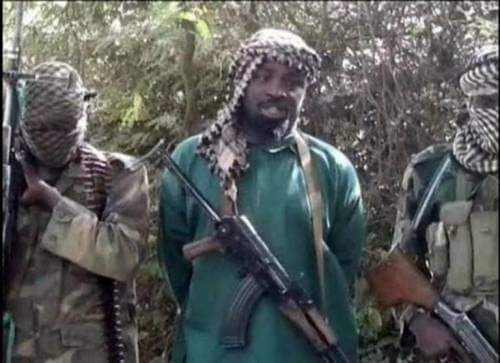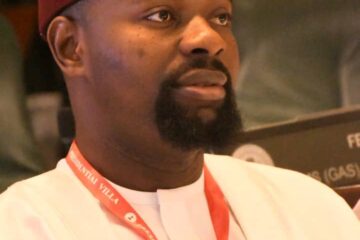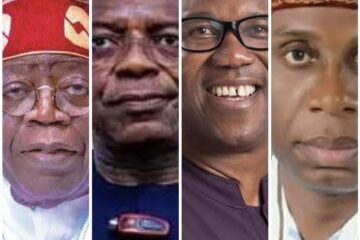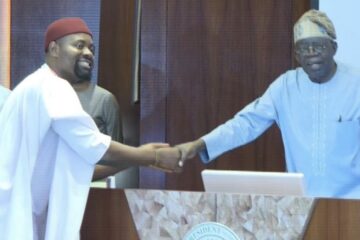Abubakar Shekau, leader of Boko Haram faction, Jama’tu Ahlis Sunna Lidda’awati wal-Jihad (JAS), is reportedly dead.
On Thursday, Eons Intelligence reported that his demise followed an attack by the Islamic State West Africa Province (ISWAP), a splinter group.
ISWAP fighters, led by its commander, Bana Duguri, stormed the Sambisa hideout of Boko Haram.
Shekau was said to have blown himself to avoid being captured alive.
This is not the first news about the death of Shekau. If true, ISWAP will likely make an announcement in the coming days.
Who is Abubakar Shekau?
According to Wikipedia, Abubakar Shekau was born in Shekau town, in Tarmuwa local government, Yobe state; his exact date of birth is unknown but is said to be between 1965 and 1975. Shekau is an ethnic Kanuri, and also speaks Hausa, Fulani, Arabic, and English. In 1990 he moved to the Mafoni area in Maiduguri and studied under a traditional cleric before entering the Borno College of Legal and Islamic Studies (now called Mohammed Goni College of Legal and Islamic Studies). Shekau left the college for ideological reasons and without earning a degree. He later met Mohammed Yusuf, the founder of Jamaat Ahlus Sunnah li Dawah wal Jihad, and became one of his deputies. Shekau was appointed the leader of the group in July 2009, after the death of Yusuf in the 2009 Boko Haram uprising. Shekau survived being shot in the leg during the 2009 attempt on his life by Nigerian security forces. He is married to one of Muhammad Yusuf’s four widows. His nickname is “Darul Tawheed”, which translates as “specialist in tawheed”, the Islamic concept of oneness of Allah.
Shekau’s leadership has not gone unchallenged. He received a letter from al-Qaeda in the Islamic Maghreb giving him advice but he did not heed it. As a result of his erratic leadership, in 2012 a faction of the group broke off to form Jamaat Ansar al-Muslimin fi Bilād as-Sudan (Ansaru). This faction included his military commander Abu Muhammad al-Bauchawi, and religious advisor Sheikh Abu Osama al-Ansari Muhammad Awal al-Gombawi. Despite this, many soldiers and commanders stayed with Shekau, including military commanders Abu Sa’ad al-Bamawi and Muhammad Salafi. With his group mostly intact, Shekau engaged in conflict with Ansaru, killing their leader Abu Osama al-Ansari. As a result of this, and other arrests of Ansaru leaders by the Nigerian government, Ansaru did not pose a further threat to Shekau’s leadership of the jihadi movement in Nigeria, and the group became defunct by 2015.
Shekau’s fellow jihadist fighters were undisciplined and abused the populations they encountered, resulting in the establishment of civilian militias such as the Civilian Joint Task Force to fight them. Shekau is also thought to have killed his own religious advisors, including Sheikh Abd al-Malek al-Ansari al-Kadunawi and Abu al-Abbas al-Bankiwani.
In June 2012, the United States Department of State designated Shekau as a terrorist and effectively froze his assets in the United States. Since June 2013, the Department has had a standing reward of US$7 million for information leading to Shekau’s capture through its Rewards for Justice program. In addition, the Nigerian army has offered a ₦50 million reward (approximately US$300,000) for Shekau.
In videos Shekau posted online, he boasted often about his invincibility; mocked various armies; and stated that he “cannot be stopped” and “cannot die except by the will of Allah”. He has also boasted of being in possession of armoured tanks and other combat vehicles. His online videos frequently depict anti-American rhetoric, and he has made multiple threats to attack the U.S.
In one prominent incident, he took credit for the kidnapping of over 200 school girls in April 2014. Shekau also announced that the kidnapped girls have been converted to Islam. He has claimed to be waging a jihad against Christianity.
With the rise of the Islamic State in Iraq and Syria during 2014 and 2015, Shekau faced pressure from his commanders and soldiers to pledge his allegiance to IS leader Abu Bakr al-Baghdadi. A history of the group says that Shekau “was compelled to give allegiance, and that was through a coming together of the military commanders, and after he became convinced that the matter was about to go out of his hand, and that his throne would be shaken and emptied of him if he did not give allegiance”. In August 2016, ISIL appointed Abu Musab al-Barnawi as the leader of the group in place of Shekau. Shekau refused to recognise Barnawi’s authority and split off part of the group under its original name of Jamaat Ahlus Sunnah li Dawah wal Jihad, while Barnawi lead the Islamic State’s West African province. While Shekau continues to lead his group, he has only 1,500 soldiers, whereas Barnawi has 3,500. Shekau has been widely denounced as following the ideology of the Khawarij by the Islamic State and West Africa province in Nigeria.
Following the split, many clashes occurred between Shekau and Barnawi’s soldiers throughout the month of August and the following months. On 12 September 2016, 30 of Shekau’s soldiers were killed and 40 captured by IS-West Africa. In October 2016, Shekau’s soldiers attacked the Karino area south of Lake Chad with 350 men seizing the village of Tunubuma. Then Barnawi’s soldiers counter-attacked, killing more than 75, including the leader Muhammad Bakr.




